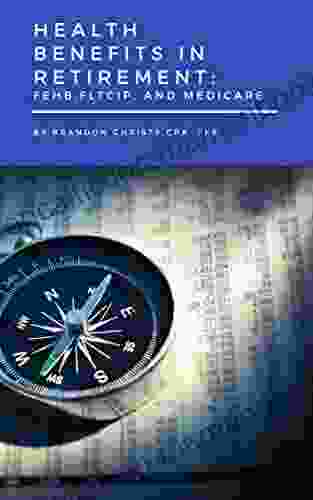Eating Disorders: A Comprehensive Guide for Parents, Second Edition

4.4 out of 5
| Language | : | English |
| File size | : | 2194 KB |
| Text-to-Speech | : | Enabled |
| Screen Reader | : | Supported |
| Enhanced typesetting | : | Enabled |
| Word Wise | : | Enabled |
| Print length | : | 186 pages |
: Understanding Eating Disorders
Eating disorders are complex mental illnesses that manifest in disordered eating patterns, including severe food restriction, excessive calorie intake, or purging behaviors. They are characterized by an intense preoccupation with body weight, shape, and food, leading to severe emotional distress and health complications.
This guide provides parents with an in-depth understanding of the different types of eating disorders, their causes, and their effects on children and adolescents. It emphasizes the importance of early detection, timely intervention, and collaborative care involving medical professionals, mental health practitioners, and family members.
Types of Eating Disorders
- Anorexia Nervosa: Characterized by extreme food restriction, intense fear of gaining weight, and a distorted body image.
- Bulimia Nervosa: Involves recurrent episodes of binge eating (rapid consumption of large amounts of food in a short period) followed by compensatory behaviors such as purging (self-induced vomiting, misuse of laxatives) or excessive exercise.
- Binge Eating Disorder: Characterized by recurrent episodes of binge eating without compensatory behaviors. Individuals often experience feelings of shame, guilt, and loss of control after binge episodes.
- Other Specified Feeding or Eating Disorders (OSFED): A category for eating disorders that do not meet the criteria for anorexia nervosa, bulimia nervosa, or binge eating disorder.
Causes of Eating Disorders
The exact causes of eating disorders are unknown, but research suggests a combination of biological, psychological, and social factors may play a role:
- Biological factors: Genetics, brain chemistry, and hormonal imbalances may predispose individuals to developing eating disorders.
- Psychological factors: Perfectionism, low self-esteem, and a history of trauma or abuse can increase the risk of developing an eating disorder.
- Social factors: Societal pressures to be thin, exposure to media images that promote unrealistic body ideals, and a culture that emphasizes weight and appearance can contribute to the development of eating disorders.
Effects of Eating Disorders
Eating disorders can have devastating physical, psychological, and social consequences:
- Physical effects: Malnutrition, electrolyte imbalances, heart problems, gastrointestinal issues, dental problems, and osteoporosis.
- Psychological effects: Depression, anxiety, obsessive-compulsive disorder, social isolation, and suicidal thoughts.
- Social effects: Withdrawal from social activities, academic difficulties, strained relationships with family and friends.
Early Detection and Intervention
Early detection and intervention are crucial for the successful recovery from an eating disorder. Parents play a vital role in recognizing the warning signs and seeking professional help:
- Changes in eating habits (significant decrease or increase in food intake)
- Preoccupation with body weight, shape, and food
- Negative body image, self-criticism
- Withdrawal from social activities or isolation
- Changes in mood or behavior (irritability, anxiety, depression)
- Evidence of binge eating or purging behaviors
If you suspect your child may have an eating disorder, do not hesitate to seek professional help. Early intervention can improve the chances of a full recovery.
Treatment for Eating Disorders
Treatment for eating disorders typically involves a combination of medical, nutritional, and psychological interventions tailored to the individual's needs.
- Medical intervention: May include monitoring vital signs, nutritional support, and medication to manage health complications.
- Nutritional counseling: Help individuals develop a balanced and healthy eating plan, address nutritional deficiencies, and promote healthy body image.
- Psychological therapies: Cognitive-behavioral therapy, family-based therapy, and interpersonal therapy are common treatment options for eating disorders. These therapies aim to address underlying psychological issues, promote self-acceptance, and improve coping mechanisms.
In some cases, hospitalization may be necessary to provide intensive support and stabilize the individual's physical and mental health.
The Role of Parents in Eating Disorder Recovery
Parents play a pivotal role in supporting their children throughout the recovery process from an eating disorder:
- Provide emotional support: Be there for your child, listen to their concerns, and let them know they are not alone.
- Educate yourself: Learn about eating disorders, treatment options, and recovery. This will help you better understand your child's experience and support them effectively.
- Collaborate with professionals: Work closely with your child's treatment team to provide a consistent and supportive environment for recovery.
- Foster healthy eating habits: Create a family environment that promotes healthy eating and body image.
- Encourage self-care: Support your child in engaging in healthy activities that promote self-esteem and well-being.
Eating disorders are serious mental illnesses that require professional intervention and long-term support. This guide has provided parents with a comprehensive understanding of eating disorders, their causes, effects, and treatment options. By recognizing the warning signs, seeking early help, and playing an active role in their child's recovery, parents can help their children overcome eating disorders and achieve a healthy and fulfilling life.
Resources
- National Eating Disorders Association
- Anorexia Nervosa
- Bulimia Nervosa
- Binge Eating Disorder
4.4 out of 5
| Language | : | English |
| File size | : | 2194 KB |
| Text-to-Speech | : | Enabled |
| Screen Reader | : | Supported |
| Enhanced typesetting | : | Enabled |
| Word Wise | : | Enabled |
| Print length | : | 186 pages |
Do you want to contribute by writing guest posts on this blog?
Please contact us and send us a resume of previous articles that you have written.
 Top Book
Top Book Novel
Novel Fiction
Fiction Nonfiction
Nonfiction Literature
Literature Paperback
Paperback Hardcover
Hardcover E-book
E-book Audiobook
Audiobook Bestseller
Bestseller Classic
Classic Mystery
Mystery Thriller
Thriller Romance
Romance Fantasy
Fantasy Science Fiction
Science Fiction Biography
Biography Memoir
Memoir Autobiography
Autobiography Poetry
Poetry Drama
Drama Historical Fiction
Historical Fiction Self-help
Self-help Young Adult
Young Adult Childrens Books
Childrens Books Graphic Novel
Graphic Novel Anthology
Anthology Series
Series Encyclopedia
Encyclopedia Reference
Reference Guidebook
Guidebook Textbook
Textbook Workbook
Workbook Journal
Journal Diary
Diary Manuscript
Manuscript Folio
Folio Pulp Fiction
Pulp Fiction Short Stories
Short Stories Fairy Tales
Fairy Tales Fables
Fables Mythology
Mythology Philosophy
Philosophy Religion
Religion Spirituality
Spirituality Essays
Essays Critique
Critique Commentary
Commentary Glossary
Glossary Bibliography
Bibliography Index
Index Table of Contents
Table of Contents Preface
Preface Introduction
Introduction Foreword
Foreword Afterword
Afterword Appendices
Appendices Annotations
Annotations Footnotes
Footnotes Epilogue
Epilogue Prologue
Prologue Dave Grohl
Dave Grohl Satchin Panda
Satchin Panda Joan Robinson
Joan Robinson Avery North
Avery North Eliane Souza
Eliane Souza Jessica Seinfeld
Jessica Seinfeld Amit Mishra
Amit Mishra Amir Asghari
Amir Asghari Leisure Arts
Leisure Arts Joseph A Schumpeter
Joseph A Schumpeter Dmytro Bondarenko
Dmytro Bondarenko Raymona Brown
Raymona Brown John Hollander
John Hollander Mel Bond
Mel Bond Pascale Petit
Pascale Petit Ford Madox Ford
Ford Madox Ford Gregory Curtis
Gregory Curtis Tim Seeley
Tim Seeley Giles Tippette
Giles Tippette Robert Clark Young
Robert Clark Young
Light bulbAdvertise smarter! Our strategic ad space ensures maximum exposure. Reserve your spot today!

 Edward BellGlobal Marketing Management: A Comprehensive Guide Based on Warren Keegan's...
Edward BellGlobal Marketing Management: A Comprehensive Guide Based on Warren Keegan's...
 Deion SimmonsBlack Butler 178: Unveiling the Enigmatic John Philip Hunter, the Phantomhive...
Deion SimmonsBlack Butler 178: Unveiling the Enigmatic John Philip Hunter, the Phantomhive... Howard PowellFollow ·6.3k
Howard PowellFollow ·6.3k Greg FosterFollow ·3.2k
Greg FosterFollow ·3.2k Jesus MitchellFollow ·18.8k
Jesus MitchellFollow ·18.8k Edmund HayesFollow ·17.5k
Edmund HayesFollow ·17.5k Ryan FosterFollow ·3.5k
Ryan FosterFollow ·3.5k Jeremy MitchellFollow ·8.1k
Jeremy MitchellFollow ·8.1k Jarrett BlairFollow ·4k
Jarrett BlairFollow ·4k Tom HayesFollow ·3.3k
Tom HayesFollow ·3.3k

 Allen Ginsberg
Allen GinsbergUnlocking Financial Peace with Low Risk Investing: A...
In the world of investing, it is often said...

 Eddie Powell
Eddie PowellLoop of Jade: An Exploration of Grief, Memory, and the...
Sarah Howe's...

 Zachary Cox
Zachary CoxHealth Benefits in Retirement: Navigating the Maze of...
Retirement...
4.4 out of 5
| Language | : | English |
| File size | : | 2194 KB |
| Text-to-Speech | : | Enabled |
| Screen Reader | : | Supported |
| Enhanced typesetting | : | Enabled |
| Word Wise | : | Enabled |
| Print length | : | 186 pages |














